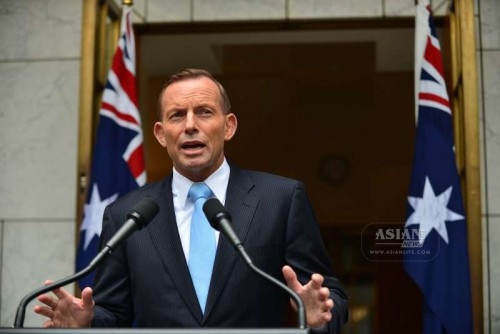
Australia has decided to sign a memorandum of understanding (MoU) on the Asian Infrastructure Investment Bank (AIIB), which will allow it to become a founding member of the bank, Prime Minister Tony Abbott said.
In a joint statement with Foreign Minister Julie Bishop and Treasurer Joe Hockey, Abbott said the MoU would enable Australia “to participate as a prospective founding member in the negotiation of setting up the bank”, Xinhua news agency reported.
“The government has discussed the AIIB extensively with China and other key partners inside and outside the region,” the statement said.
“Good progress has been made on the bank’s design, governance and transparency over the past few months, but we still have issues that we will address through ongoing consultations.”
March 31 is the deadline for countries willing to join the China-proposed AIIB as a founding member to flag their intention. Australia’s announcement was well anticipated as senior government officials have been talking about the possibility of Australia joining the bank ever since Britain made clear its intention to join on March 12.
“Recognising the pressing need for infrastructure investment in the Asia-Pacific, Australia made infrastructure a priority during our G20 presidency in 2014,” the statement said.
“Working with other key multilateral institutions such as the World Bank and the Asian Development Bank, the AIIB has the potential to play a valuable role in addressing infrastructure needs and boosting economic growth in the region with potential benefits for Australia.”
The statement also said key matters to be resolved before Australia considered joining the AIIB include the bank’s board of directors having authority over key investment decisions, and that no one country can control the bank.
The Asian Development Bank estimated that there is an $8-trillion deficit in Asia’s infrastructure fields, including transport, energy and telecommunication.
It was reported that Australia could invest up to A$3 billion ($2.3 billion) in the bank, which could lead to a wave of infrastructure development across the Asia-Pacific region.
Peter Drysdale, head of Australian National University’s East Asian Bureau of Economic Research, said Australia and other economies throughout the region “will benefit greatly from investment through the AIIB, directed, as it is intended, towards productive investment in infrastructure that is essential to sustaining regional growth”.